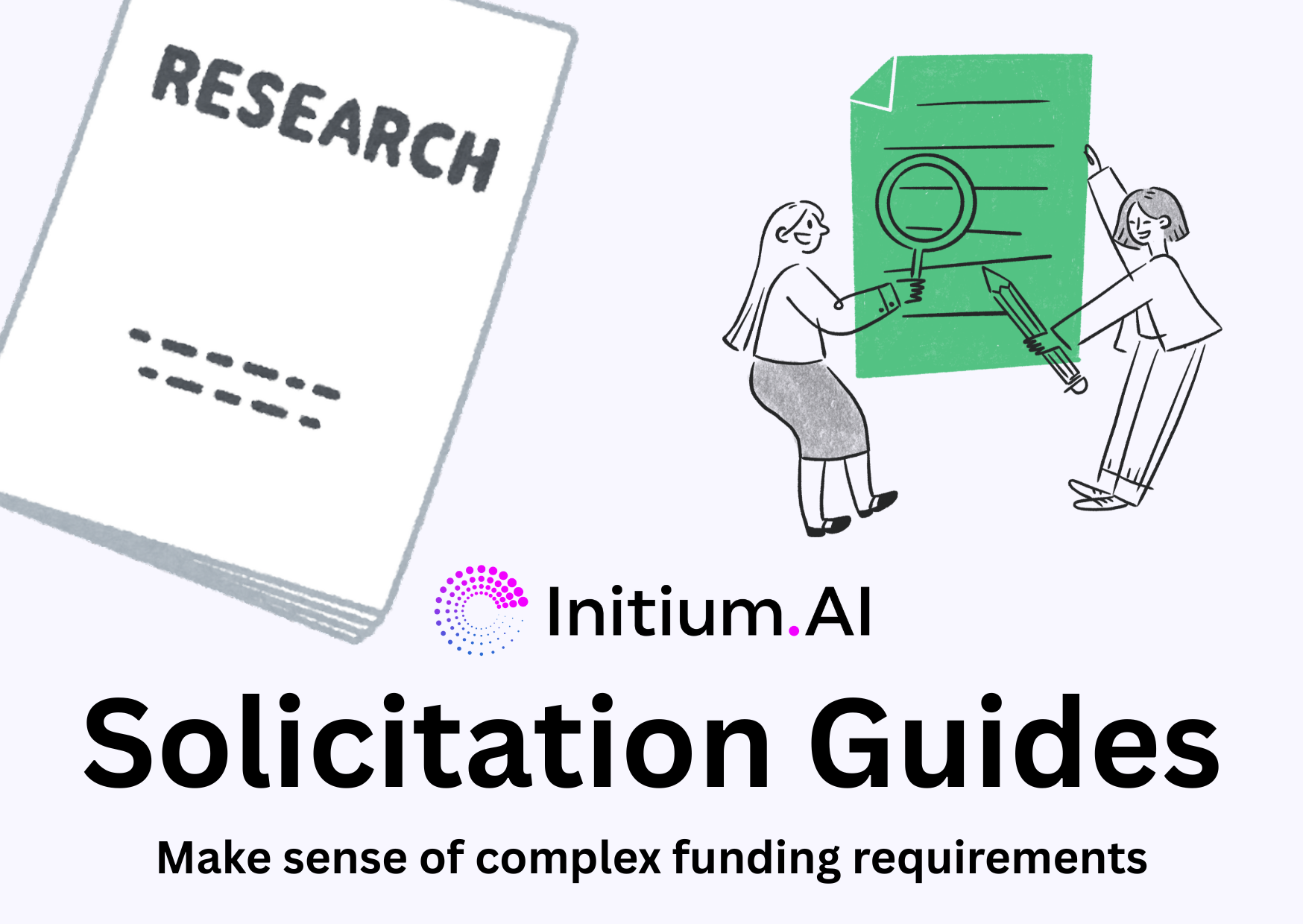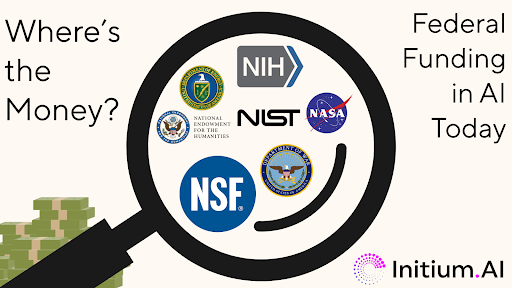
The Best Ways to Find Different Grant Funding Sources
You have a great project idea. If you could, you would have started working on it yesterday. But realizing your idea requires effort and resources, which both necessitate funding, you have to first identify a suitable funding stream before you can even think about diving into your project. But what are the different funding sources available to tap into?
We spoke with dozens of researchers across various disciplines who routinely apply for funds to support their research ideas. While we found that many of these researchers had various strategies to progress from a research idea to a grant application, most of them had one thing in common: they repeatedly applied for the same sources of funding and struggled to diversify.
Diversifying your sources of funding can be challenging and often requires stepping outside your comfort zone. This process involves two main components: first, understanding the various sources of funding available; second, learning how to think of different angles of your idea, which will help you identify a more diverse set of funding sources.
Grant Funding Streams
Researchers often associate grants with the NSF or NIH, the two primary government institutions that provide research funding. However, there are many more funding sources and types of grants available.
- Government grants. The government appropriates significant funding every year for research across various fields, guided by its overarching agenda. This category includes major institutions like the National Institutes of Health (NIH), National Science Foundation (NSF), as well as other government bodies, such as: Department of Education, Environmental Protection Agency (EPA), Small Business Innovation Research (SBIR) Program, National Endowment for the Humanities (NEH)
- Private foundations. There are several foundations that support research projects, often focusing on specific fields or societal issues. These include foundations such as the Bill & Melinda Gates Foundation, Robert Wood Johnson Foundation, Ford Foundation, John D. and Catherine T. MacArthur Foundation, Rockefeller Foundation, Andrew W. Mellon Foundation, Pew Charitable Trusts, Wellcome Trust, Leukemia & Lymphoma Society, American Heart Association (AHA), Susan G. Komen Foundation
- Corporate grants. Many companies offer grants to support innovative research and development, typically aligned with commercial interests. Companies that periodically have open grant calls include Google Research Grants, Amazon Academic Grants, IBM Academic Awards Programs, Cisco Global Impact Cash Grants, Walmart Foundation, Some companies also offer in-kind support in the form of compute or service credits, for instance Cohere for AI, Amazon AWS.
- Academic and professional societies. These organizations often fund research that advances their respective fields, new collaborations, or events that can help bring researchers together. Some professional organizations that periodically offer funds are: American Association for the Advancement of Science (AAAS), American Chemical Society (ACS), American Psychological Association (APA), National Academy of Sciences (NAS), Institute of Electrical and Electronics Engineers (IEEE), Society for Human Resource Management (SHRM) TODO add CRA, AAAI, …
- International funding bodies. Global organizations provide grants for research with an international scope or impact. Some of these funding bodies include (note that some may require international collaborations): European Research Council (ERC), United Nations Educational, Scientific and Cultural Organization (UNESCO), World Health Organization (WHO), Global Innovation Fund, Canadian Institutes of Health Research (CIHR), Australian Research Council (ARC)
Identifying Different Angles of Your Idea
When you’re passionate about an idea, it’s easy to become so focused on it that you miss different perspectives or closely related concepts that could be just as exciting. When it comes to funding, recognizing these different angles can make the difference between finding a source of funding or not.
Where should you look for these different angles? For any idea, you can explore alternatives in: (1) the idea itself, (2) what enables your idea, and (3) what is enabled by your idea.
- The idea itself. You may have one main idea you want to pursue, but ideas often have alternatives or areas of focus that may require different approaches. For instance, what would it take to make your idea applicable to a specific group of people? Perhaps there is a marginalized group you could bring back into focus. Or, consider a specific domain that may require a specialized approach: what are the specifics of that domain and what would it take to have your idea applicable there?
- What enables your idea. There are always “idea enablers” that require research or work, and which may take you closer to the opportunity to work on your idea. For instance, does your idea require data? If so, look for funding opportunities that support the development of datasets or benchmarks. Does your idea require specialized training? You could seek out projects that provide support for training the people who could work on it. Or maybe your idea would benefit from a larger brainstorming session, in which case you could look for support for events or other similar initiatives.
- What is enabled by your idea. This can be one of the richest spaces to consider for connecting your idea to a seemingly unrelated space. Where could you apply your idea? Maybe in healthcare, in which case you could look into funding opportunities from NIH or other healthcare organizations. Or maybe you could expand this idea into an application with social impact, and attract interest from foundations. Additionally, there may be companies whose mission align with one of the possible applications of your idea, and you could consider a focus on that. None of these alternatives imply that you give up on the idea you are passionate about. On the contrary, they can get you closer to its execution by expanding the pool of potential funding sources.
With the ever-increasing competitiveness of grant applications, it’s essential to think outside the box when you decide on where and how to find your funding sources. We at Initium are happy to help you navigate this process and more easily identify funding for your research ideas.



